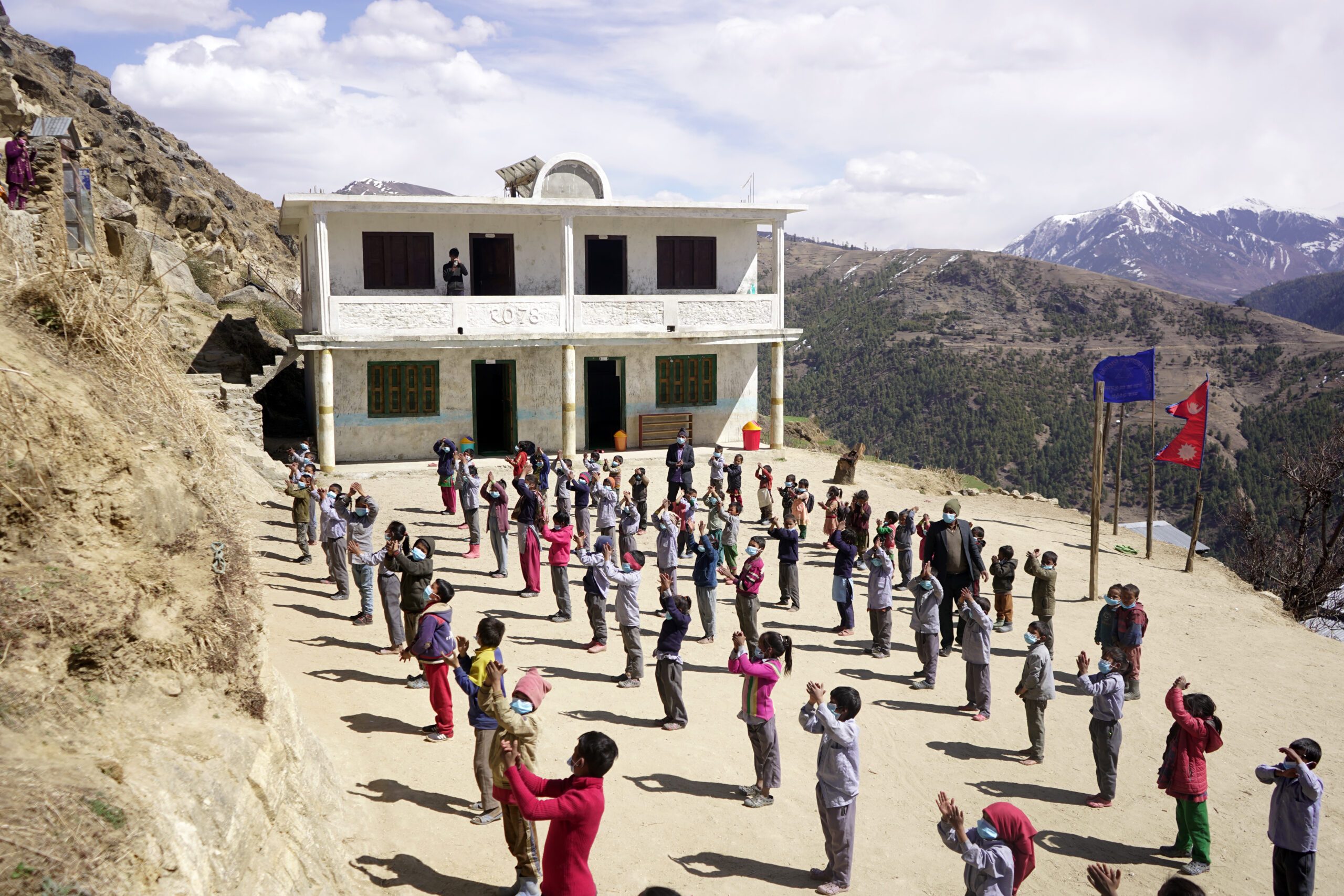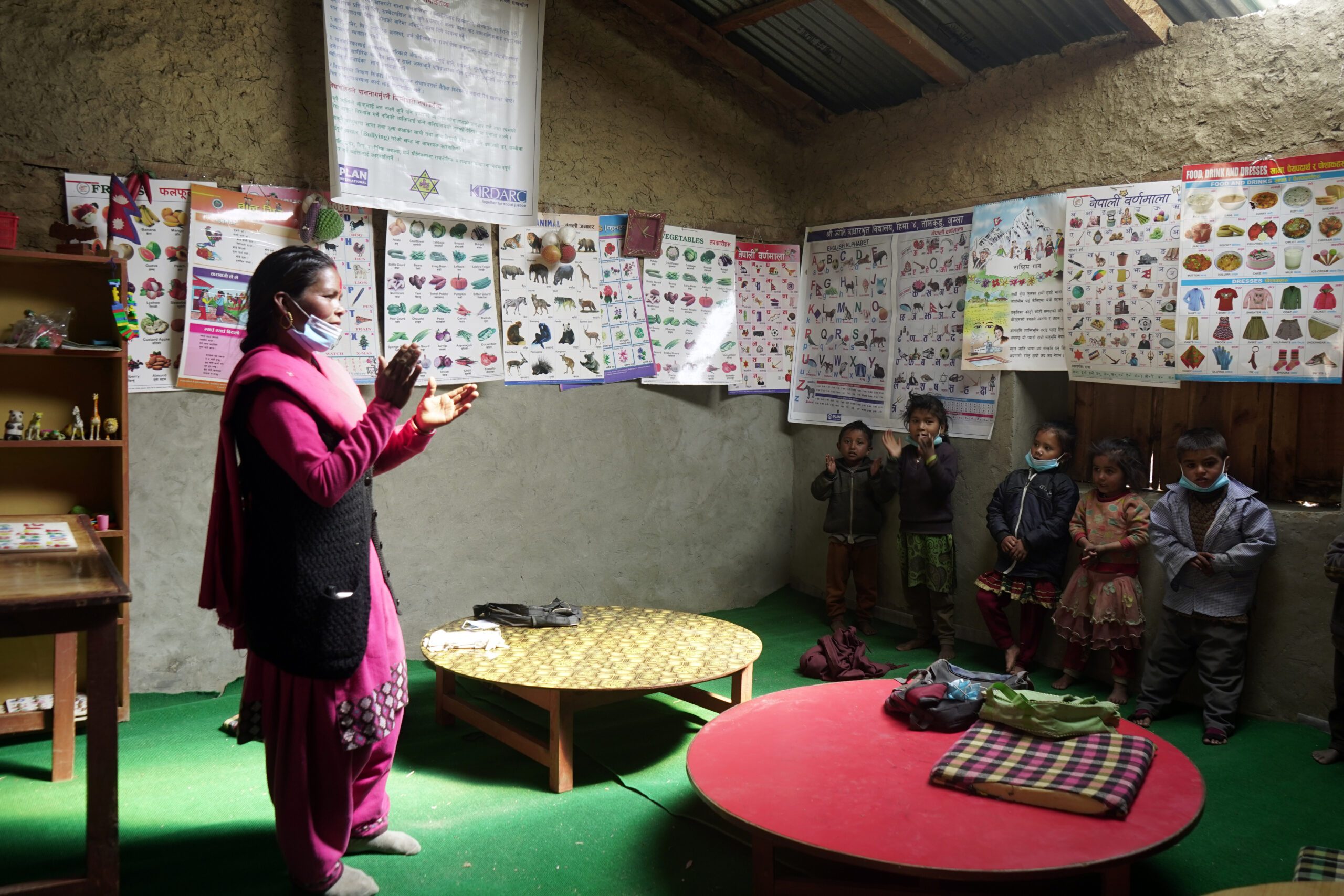Teacher tackles discrimination against Dalit children in school
Sita, a teacher from Karnali province, is ensuring Dalit children no longer face discrimination at her school.

Ever since she started working as a teacher 4 years ago, 23-year-old Sita has observed discrimination against children from Dalit communities. Formerly referred to as ‘untouchables’, Dalit children are at the bottom of Nepal’s social hierarchy system and often face a lifetime of oppression, exclusion, and human rights violations.
At Sita’s school in Karnali province, complaints were made every day about the Dalit children. The most common accusation was that a Dalit child had touched another student’s food – which according to beliefs, meant that the food had been contaminated and could no longer be eaten as Dalits are considered impure and unclean.
Dalit children face discrimination
The school used to deal with the situation by telling the Dalit children to stay away from the other students and not to touch or play with them. Brought up in a traditional community where caste-based oppression was commonplace, this action seemed sensible to Sita and she perpetuated the inequality against Dalit children by enforcing this rule.
“Of course, I had read and heard that caste-based discrimination is a social crime and a punishable act. However, living in the same society, I felt I was not able to do anything about this social practice taking place at the school,” Sita explains.
In spite of protective legislation since 1990, discrimination against people from marginalised castes collectively known as Dalits, remains active and is deeply ingrained in Nepal’s society. For Dalit children, their chance of success in school is low, the illiteracy rate is high and they are more likely to drop out of school early, particularly girls.
“I realised that school is the best place for ending the existing problems of gender and caste-based discrimination.”
Sita
Although Sita felt it was natural for discrimination against Dalit children to occur in her school, mirroring the prejudice against them in society, she started to become aware of the discussions and debates highlighting injustices against marginalised communities and she began to think that the way that the school dealt with complaints against the Dalit children was not right.
Training increases awareness
Then, in 2020, Sita had the opportunity to take part in a 5-day training workshop on gender transformative education organised as part of the Karnali Education Project. There, Sita learned new and innovative teaching methods that take into account issues arising from poverty, gender, and caste-based oppression.
“The training helped me to understand more about racial discrimination. I learned why issues like untouchability are a hindrance in our society, why the discrimination continues, and what we can do about it. I realised that change takes time, however, change is possible.”
Continuing, Sita says: “From the training, I learned that the role of a teacher is not only to complete the curriculum but also to play a significant role in changing society. I realised that school is the best place for ending the existing problems of gender and caste-based discrimination and untouchability in the community.”

Taking what she had learned during the workshop back to her school, Sita held discussions with her fellow teachers, the principal, and members of the school management committee on ways to end discrimination against Dalit children. As a consequence, a school improvement plan was drawn up which the school management committee agreed to implement.
“I started practicing what I had learned about discrimination in the training while teaching the children. I also started discussing these issues not only in school but also in the village and neighborhood,” explains Sita.
Children break down barriers
Sita’s hard work and joint effort with the rest of the school community have been successful, and untouchability is no longer an issue in the school. “Now, Dalit and non-Dalit students sit, eat and play together,” says Sita proudly.
Sita attributes this change to Plan International for organising the training where she was able to learn new methods of teaching children, without being influenced by their social status, gender, or disabilities. “I can teach them in a way that they can understand and using educational materials made from a variety of local resources has also been useful.”
According to Sita, 60% of students at her school are from marginalised communities, so she is very happy to see the changes that have taken place. “I hope that we will now see discrimination against Dalit people end in the wider community,” she concludes.
Categories: Education, Protection from violence


